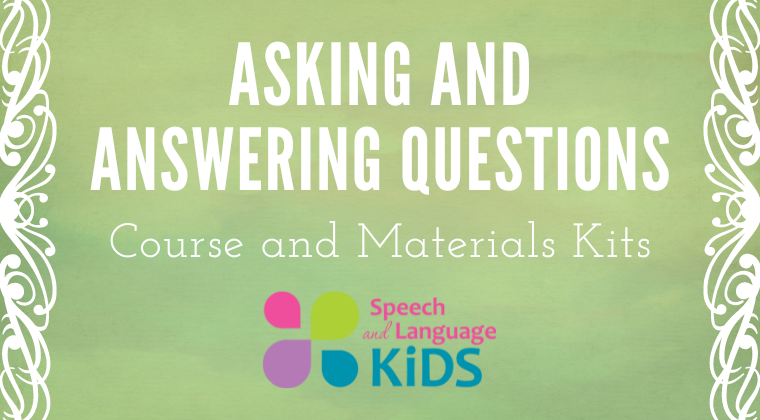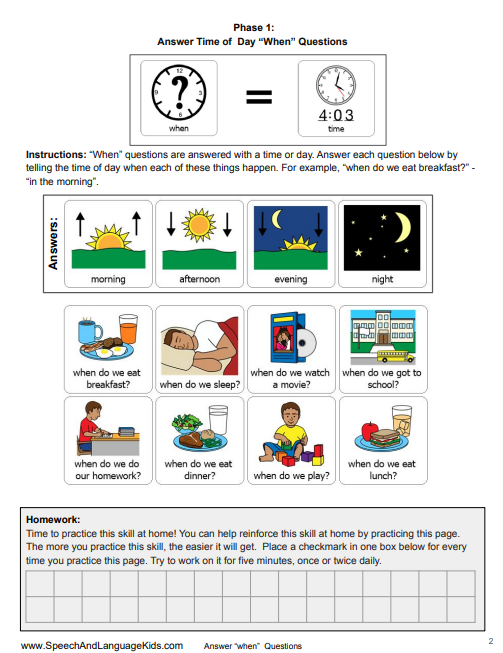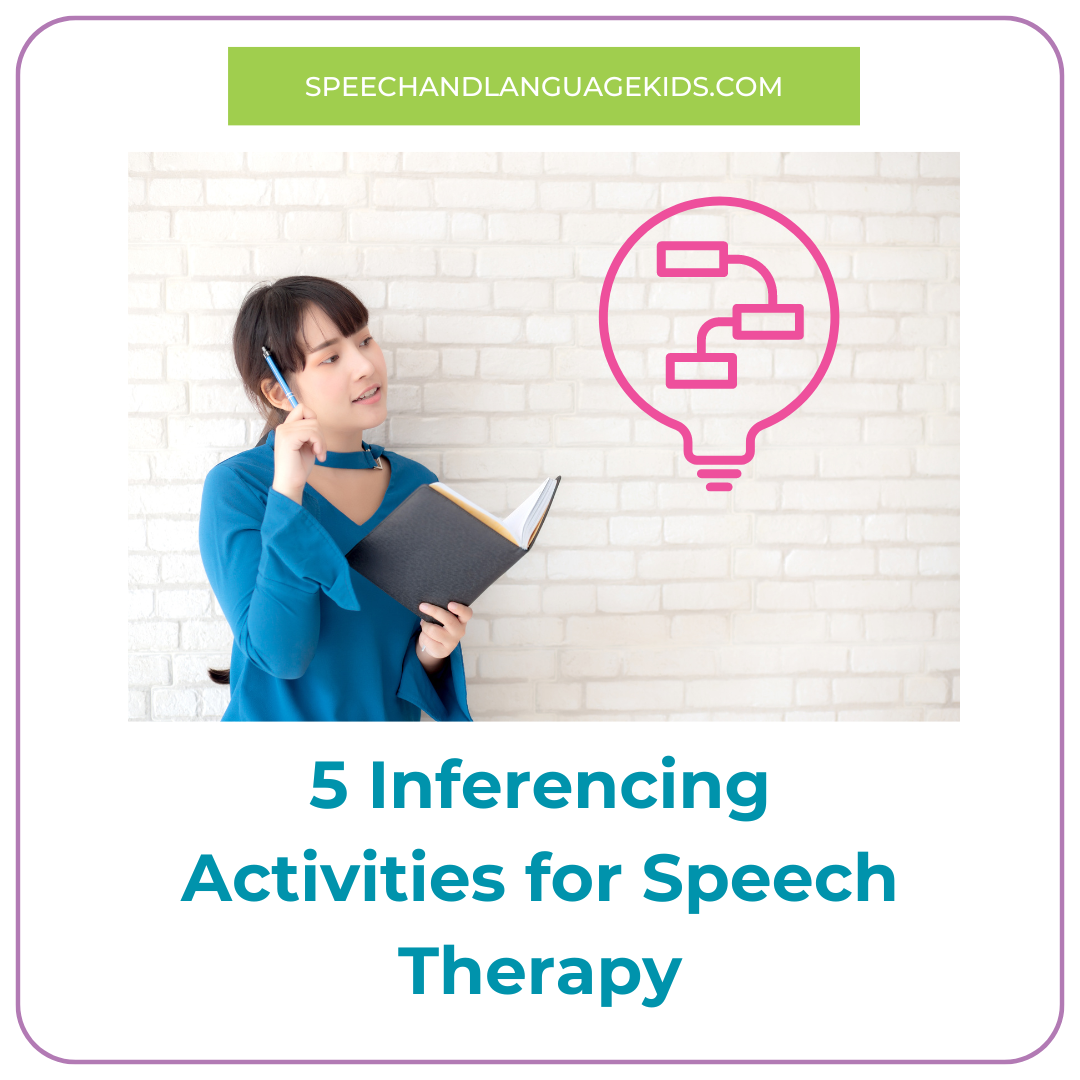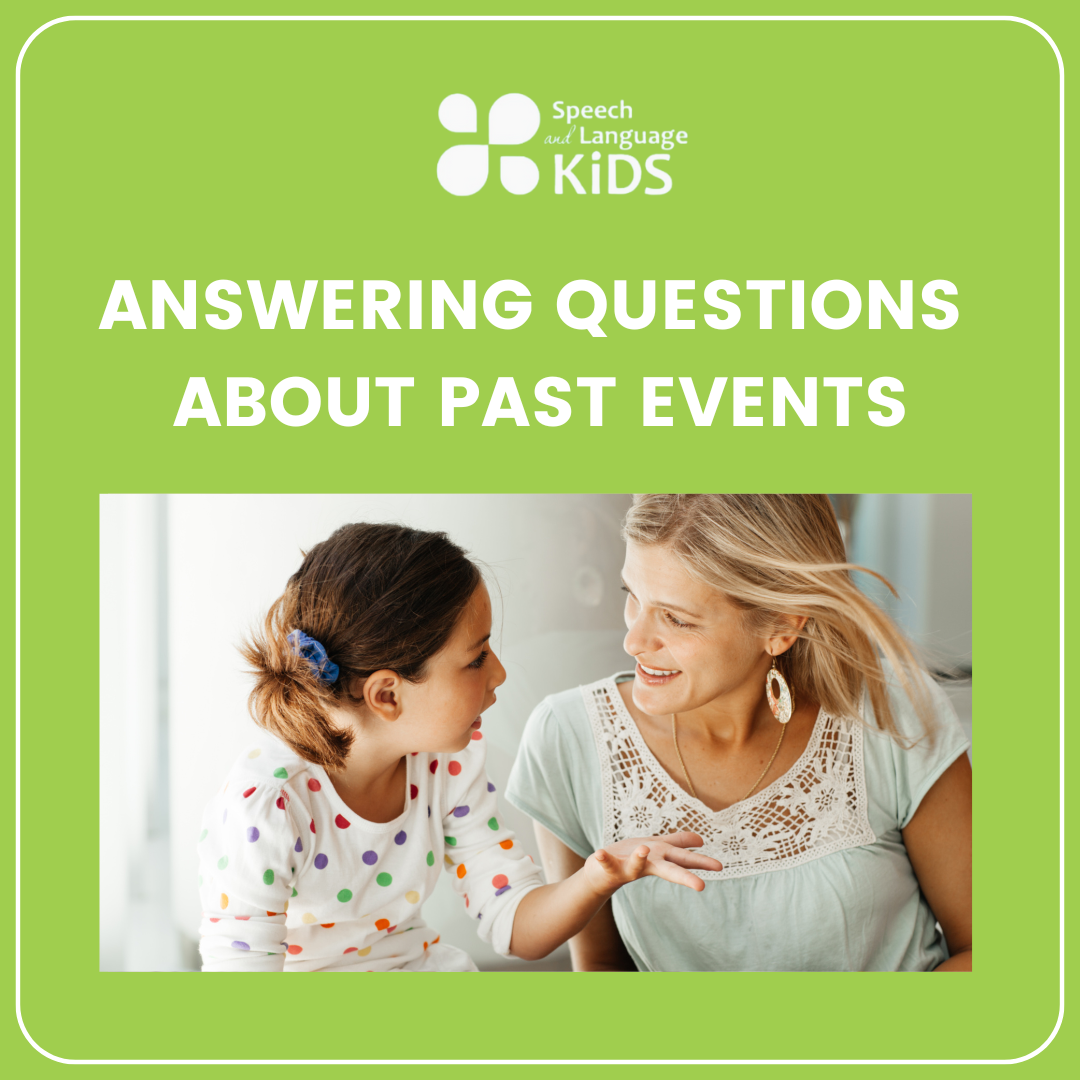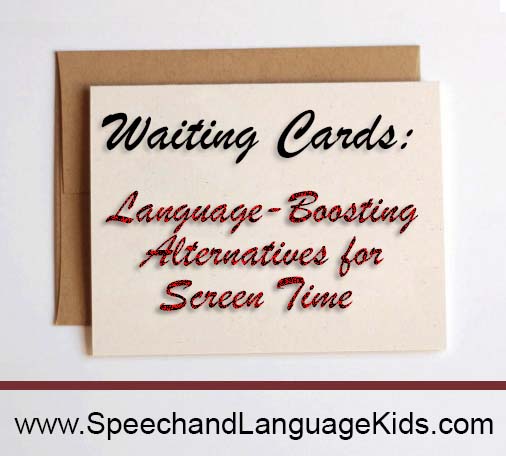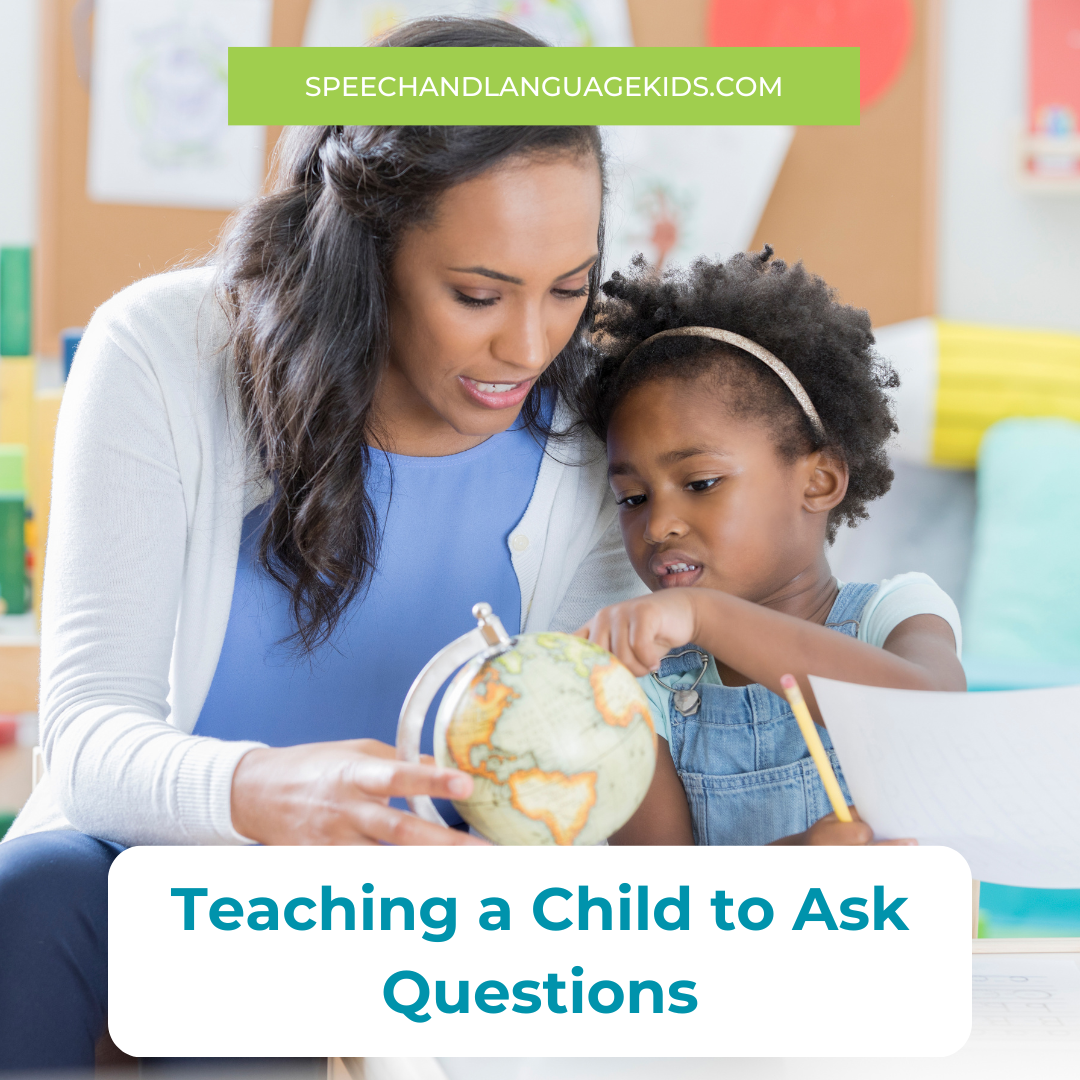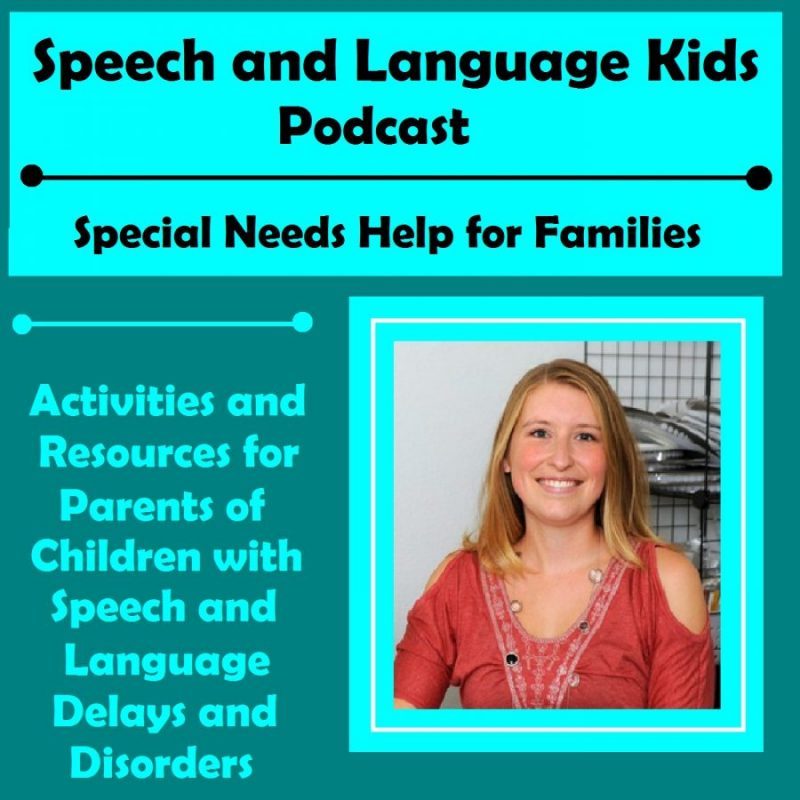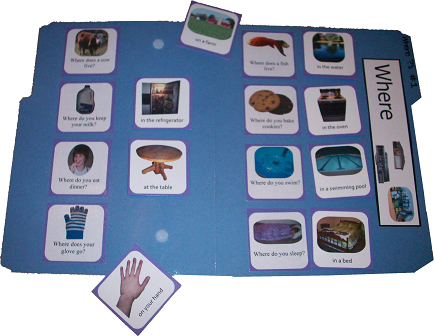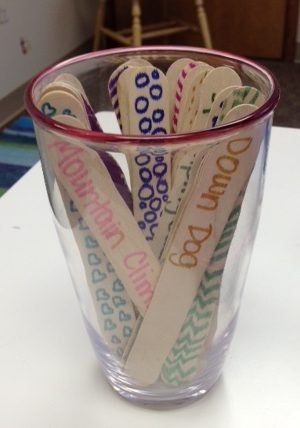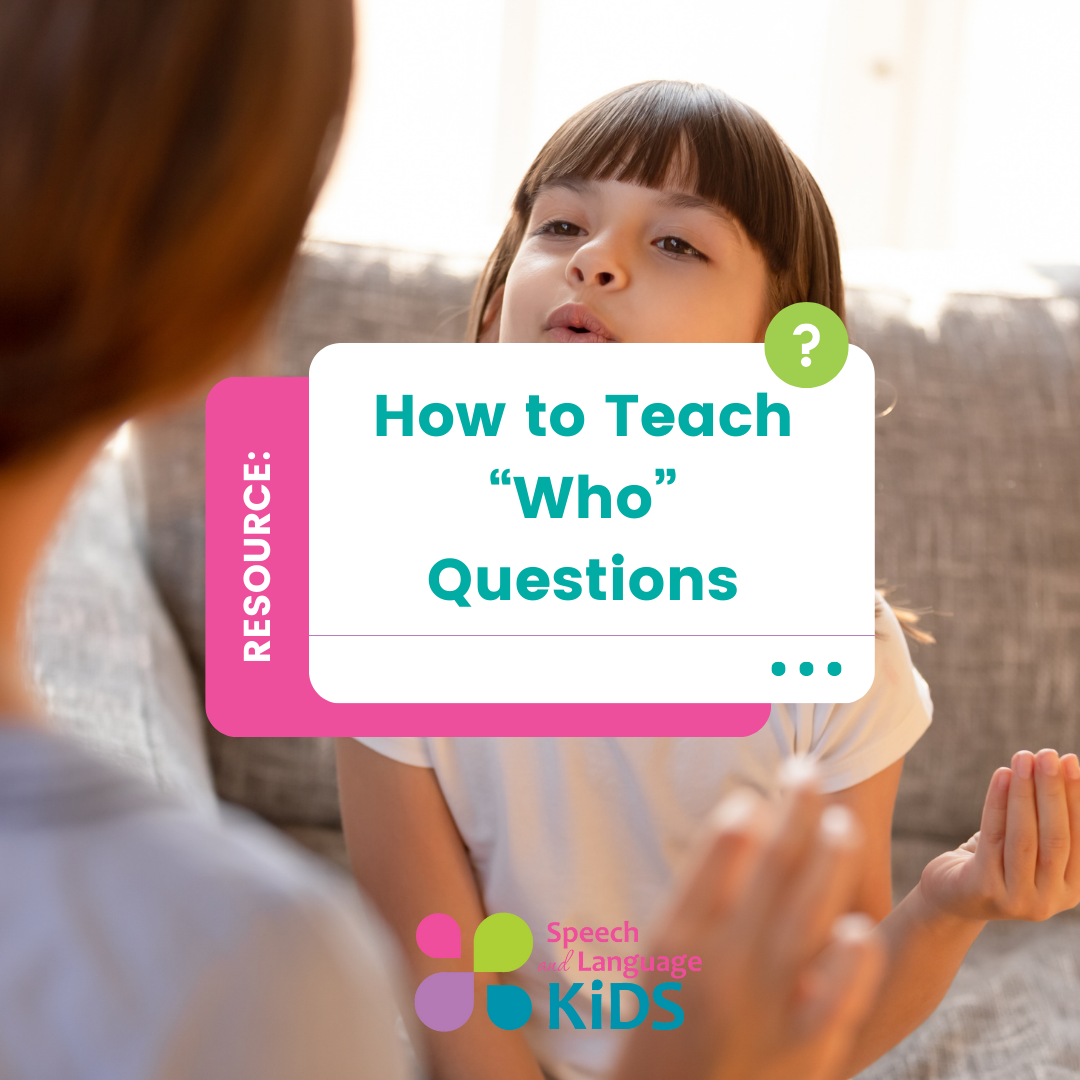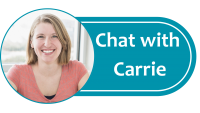Asking and Answering Questions
Children with speech and language delays often have difficulty asking and answering questions appropriately. This is a difficult skill as it requires the child to understand what is being asked, process the question, form an answer, and speak that answer. Or, if the child is asking a question, it requires formulation of the question with all of the words in the correct order (which is often backwards from the word order for statements).
When Should Children be Asking and Answering Questions?
Not all questions are created equal. Some questions are easier for children to learn and others require more complex thinking and verbal skills. If you are wondering what type of questions to begin using with a child, take a look at the ages that typically-developing children master them. Start with the easier ones and work your way toward the harder ones.
Age ~~ Question Skills Mastered
1-2 yrs ~~ Chooses from two objects (by pointing or speaking) when asked what she wants
Answers simple “where” questions by pointing, such as “where’s the ball”
Answers “what’s this” questions about familiar objects or pictures
Answers yes/no questions, possibly with a head nod or shake
Starts to use question words, beginning with “what’s that?”
Uses a rising intonation (pitch goes up at the end) to indicate that she’s asking something, like saying “Daddy?”
2-3 yrs ~~ Points to objects when described, such as “What do you wear on your head?”
Answers longer questions, such as “where…?”, “what….doing?”, and “who is…..?”
Answers or understands “Can you…” questions
Asks basic questions about her own wants and needs, such as “where cookie?”
Asks “Where…?”, “What…?”, “What….doing?” questions
3-4 yrs ~~ Answers more complex questions, such as “who”, “why”, “where”, and “how”
Answers “If…what…?” questions, such as “if it starts raining, what do you do?”
Answers questions about the function of objects “what do you do with a fork?”
Asks “Why?”…constantly….
Uses “what, where, when, how, and whose” when asking questions
Asks “Is…” Questions
Inverts word order to ask, such as “Is daddy going?” instead of “Daddy is going?”
4 yrs ~~ Answers “when” questions
Answers “how many” questions (as long as the answer doesn’t exceed 4)
Asks the following types of questions using correct grammatical structure: “Do you want to…”, “Are we going to…”, “can you…”
How to Assess Questions
There are plenty of standardized tests that will evaluate how a child does on answering or asking questions, but you can also gather this information informally as well. To assess the child’s ability to ask questions, simply collect a language sample while you do a complicated activity with the child. Record what types of questions the child asks and if he asks them correctly. If the child never uses any questions, you may want to start with some of the easier forms.
To assess a child’s ability to answer questions, you will want to ask him many questions. Start with a series of questions that are very similar except for the “wh-” word. The example below has 5 very similar questions that you can ask a child to see if he is able to understand the specific “wh-” question words:
- What did you eat for breakfast?
- Where did you eat breakfast?
- Who did you eat breakfast with?
- When did you eat breakfast?
- How did you eat breakfast?
- Why did you eat breakfast?
When you ask a child those questions, you will be able to tell if he understands the “wh” words or not. For example, if he responds with “cereal” for “who did you eat breakfast with”, then he probably doesn’t understand that “who” means “what person”. Once you see which ones he had the most trouble with, you can ask other questions with that “wh-” word to see if he really has trouble with that group or if it was just that one example that threw him off.
Therapy Activities for Questions
Click the topic below to see therapy activities for the different questions:
Asking Questions with Good Word Order
Answering Questions Overview (Podcast)
How to Teach a Child “What” Questions
Who Questions: How to Teach Them
How to Teach a Child When Questions
Where Questions for Kids: 5 Easy Steps
Yes/No Questions for Kids: How to Teach Them
How to Teach a Child Any New Skill By Fading Supports
Free Printable Activities for Questions
Brown Bear Story Prop: Good for What and Where Questions
What Do You See Vocabulary Game: Good for What and Where Questions
Where Questions File Folder Game
Funny Faces Game: Good for What, Who, and Where Questions
He/She Game: Good for Who and What Questions
When Questions File Folder Game
Preschool Vocabulary and Question Cards: Many questions on the back of each card! Huge bank of questions of all types
Where Does it Go? Good for Where and What Questions
Tell Me About it Descriptors Game: Good for How and What questions
Browse All Questions Resources:

About the Author: Carrie Clark, MA CCC-SLP
Hi, I’m Carrie! I’m a speech-language pathologist from Columbia, Missouri, USA. I’ve worked with children and teenagers of all ages in schools, preschools, and even my own private practice. I love digging through the research on speech and language topics and breaking it down into step-by-step plans for my followers.
Connect with Me:

